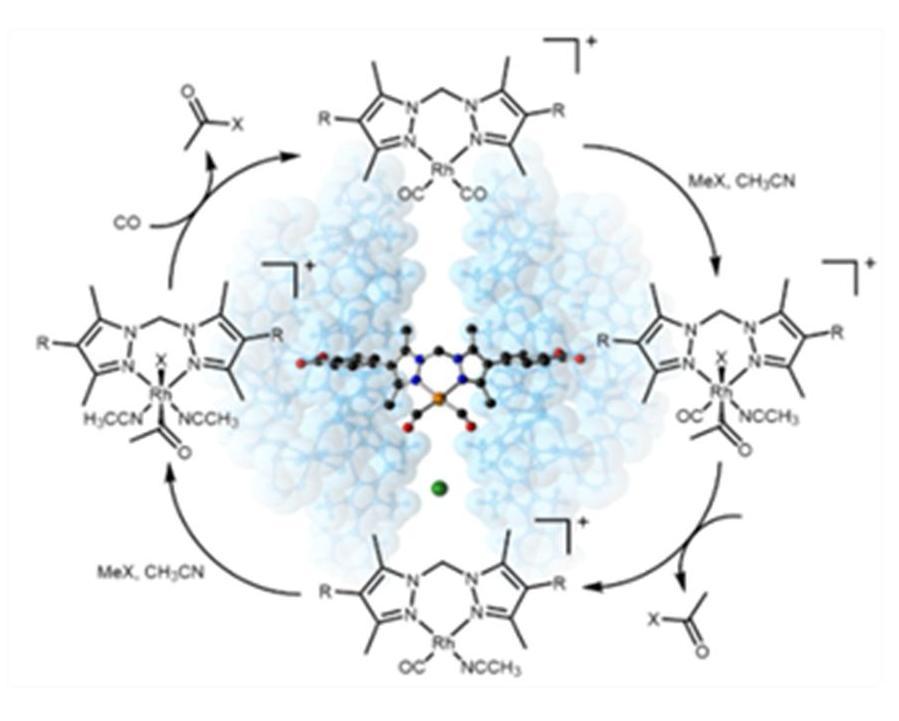Using metal-organic frameworks to understand catalysis

This chemistry honours project will explore insights into industrial catalysis and x-ray crystallography in metal-organic frameworks.
Many industrial chemicals are produced in reactions catalysed by transition metal-based complexes or organometallic species.
Understanding how these reactions work can allow the design of new or improved catalysts, or allow the active catalyst to be heterogenised into a porous, solid support to produce a more stable, reusable catalyst.
Certain metal-organic frameworks (MOFs) can act like a matrix to trap and reveal unusual reaction products or stabilise reactive intermediates. In particular, using a MOF that is poised to allow post-synthetic metalations we have been able to examine the products of organometallic transformations within MOF crystals by single crystal X-ray diffraction (SCXRD).[1,2]
This project will involve the synthesis of organometallic species within the stabilising environment of a MOF matrix and the study of organometallic transformations relevant to catalysis. For example, this might include the use of photochemistry to generate highly reactive, coordinatively unsaturated species in the MOF; extending our understanding of these species and examining their potential for catalysis.
Alternative project possibilites include the design of new MOF supports that allow ""matrix isolation"" of reactive intermediates or highly reactive, coordinatively unsaturated species.
- W. M. Bloch et al., Nat. Chem., 2014, 6, 906.
- A. Burgun et al., Angew. Chem. Int. Ed., 2017, 56, 8412.
Study honours in chemistry
The Sumby Doonan Group are a chemistry research group based at the University of Adelaide, investigating the design, synthesis and applications of porous materials.

Supervisors
Co-supervisors: Professor Christian Doonan
Research area: Macromolecular chemistry, metal-organic frameworks, porous materials, catalysis, organometallic chemistry - Centre for Advanced Nanomaterials
Recommended honours enrolment: Honours in Chemistry
